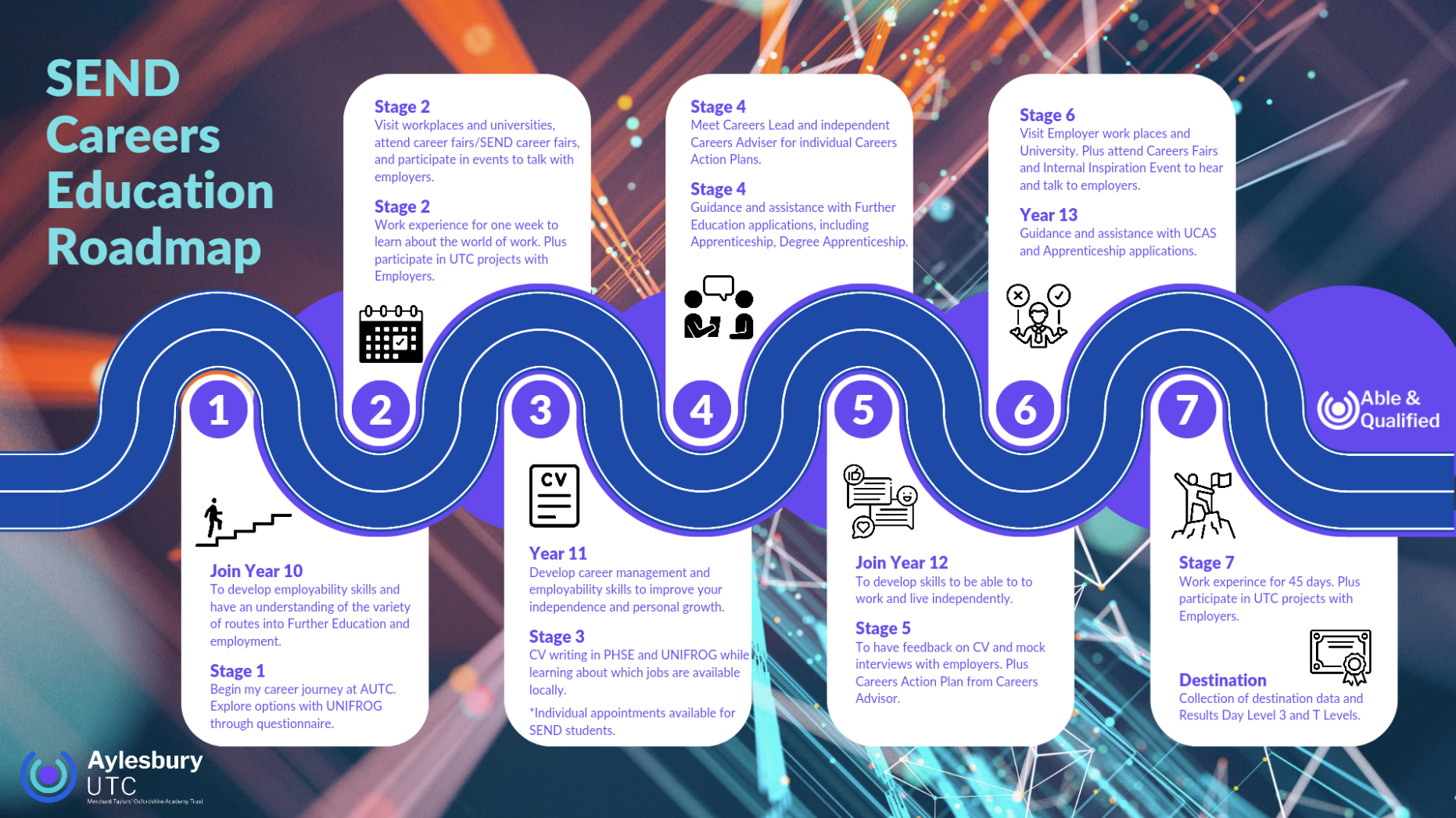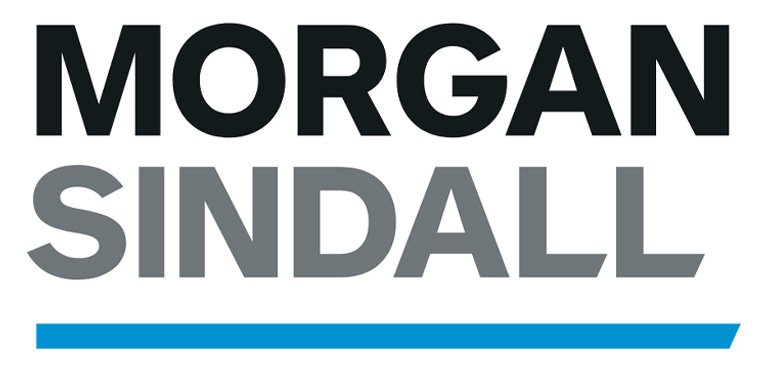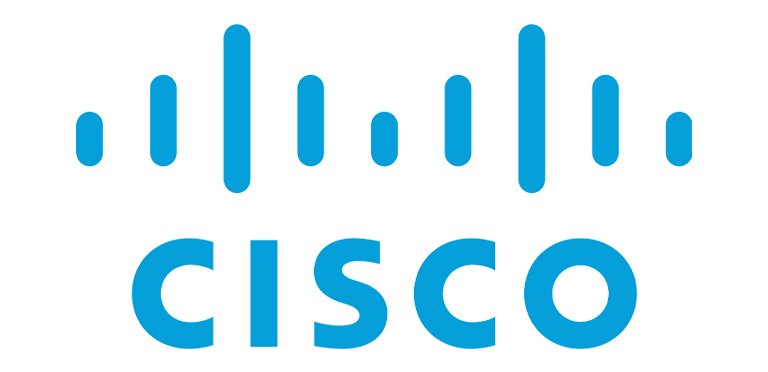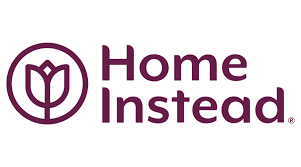Special Education Needs and Disabilities at Aylesbury UTC
Here at Aylesbury UTC we are passionate about ‘sending every young person into the world able and qualified to play their full part in it’. The Aylesbury UTC SEND and learning support team works collaboratively with students, parents, teachers and non-teaching staff. This is to enable all students regardless of need, to fulfil their full potential.
SEN Support is the category of support for children/young people with SEN but without EHC Plans. It focuses the system on the result of the support provided to that individual child/young person, rather than how children/young people access support according to the category they fit into. SEN Support places emphasis on a Graduated Approach (assess, plan, do and review).
https://schoolsweb.buckinghamshire.gov.uk/send-and-inclusion/send-support/
Some children and young people may continue to have difficulties learning. This may be despite an education provider’s attempts to identify, assess and meet their SEN. Therefore, in these cases, education providers, parents, carers and young people with SEND can consider asking for an education, health and care (EHC) needs assessment.
Download: Our SEND Provision (PDF)
EHC needs assessments involve gathering information from relevant people or agencies. This may include medical, social care and education professionals. The assessment will help us to decide if we need to provide additional help through an EHCP; education, health and care plan.
ASD
ADHD
https://www.adhdfoundation.org.uk/
CAMHS
COLLABORATIVE NEURODEVELOPMENTAL PATHWAY FOR CHILDREN AGED 5-18 YEARS
Oxford Health NHS Foundation Trust’s Child and Adolescent Mental Health Service (CAMHS) team in Buckinghamshire is working with the community paediatrics team at Buckinghamshire Healthcare NHS Trust. This allows them to provide a new method for five to 18-year-olds to access support services.
Named the Neurodevelopmental Pathway, it now provides a single point of access (SPA) for assessments and treatment. The objective is to ensure that children and young people with neurodevelopmental concerns are promptly seen by the most appropriate professionals.
Neurodevelopmental disorders can influence emotions, learning capabilities, self-regulation, and memory. They may become apparent as an individual develops.
Referrals can be accepted from parents and schools. For example, a referral could be for Autism or ADHD.
- Submit Self-Referrals through the online CAMHS referral form (Single Point of Access) https://secureforms.oxfordhealth.nhs.uk/camhs/
- Referrals from GPs and primary care should be submitted via the Single Point of Access Pathway. Use a detailed letter or existing CAMHS referral form.
- SPA can be contacted on 01865 901951 for additional information. Or you can email BucksCAMHSSPA@oxfordhealth.nhs.uk for support.
COGNITION AND LEARNING
Cognition and learning refers to the acquisition of knowledge and skills through teaching (formal or informal) and personal experience.
Acquiring even the smallest, most seemingly straightforward piece of knowledge is a complex and multi-layered process. Difficulties may exist for one or more of the stages involved.
Also, cognition and learning difficulties are commonly divided into ‘general’ and ‘specific’ learning difficulties.
https://schoolsweb.buckinghamshire.gov.uk/send-and-inclusion/send-support/
EAL
Celebrating and supporting children who have English as an Additional Language (EAL):
- All children are entitled to equal access to the whole curriculum.
- Learning and using more than one language is an asset and is a learning opportunity for both children and adults in the setting.
- An atmosphere where being able to speak other languages should be truly valued as a positive skill.
- Parents are key in developing communication with children.







